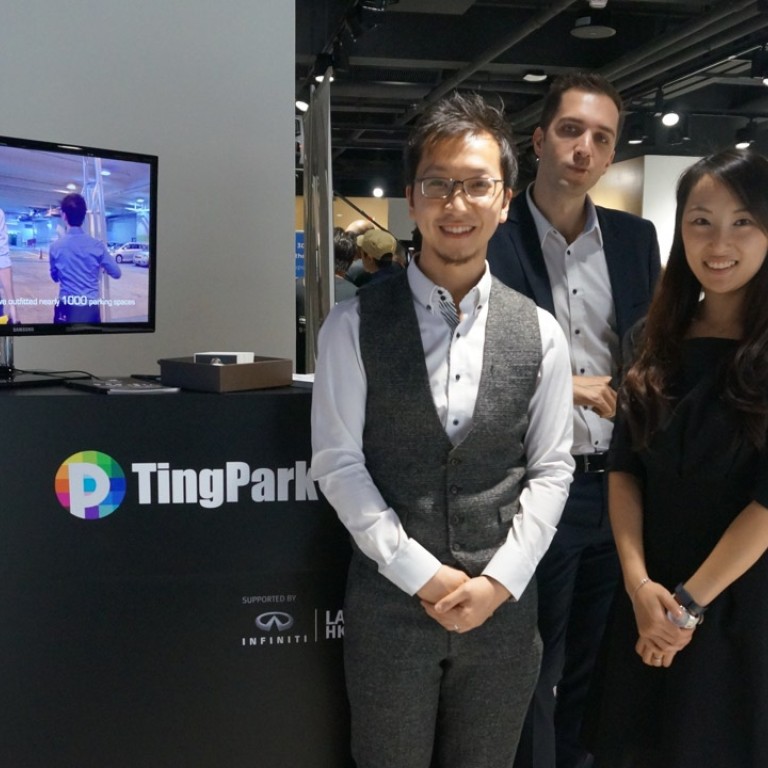
New | Hong Kong parking app to rule them all: finding a quick spot in city’s choked car parking lots
The eternal hunt for the perfect parking space in the crowded streets of Hong Kong could become a whole lot easier courtesy of an innovative free app from local start-up TingPark.
TingPark co-founder Jason Zeall says the app will utilise aggregated parking space information around the city, allowing drivers to quickly find that elusive spot on the fly.
“Although some places like IFC and the Hong Kong International Airport release real-time parking space availability data, drivers have to download multiple apps to keep track of this,” he said.
“TingPark aims to aggregate all that information into just one app.”
But apart from merely compiling data that already exists from carparks that release real-time parking data, TingPark also hopes to provide information at smaller outdoor or private carparks in Hong Kong that do not have the technology installed to inform drivers about available spaces.
Zeall said such privately owned smaller carparks were often unwilling to install costly equipment necessary for parking information, such as infrared or RFID technology that monitor space availability.
TingPark’s solution involves special sensors it developed that work directly with the app.
When users drive into a carpark with the sensors installed, they are notified what spaces are available.
The sensors, which each have detection radius of 40 metres, can also detect if a car is parked in a lot or is leaving the carpark based on the speed and motion of the vehicle.
Using this technology, TingPark is then able to update the number of vacant spaces in smaller carparks.
An obvious challenge for TingPark is that space availability data is only accurate if a majority – if not all drivers in the carpark have the app installed, since drivers without it will not be detected by the sensors.
“We plan to do a lot of marketing so that drivers will download the app,” Zeall said, adding that he hoped word of mouth will help the app reach critical mass.
TingPark recently graduated from the 12-week Infiniti Accelerator programme jointly organised by Infiniti Motor and Hong Kong venture capitalist Nest.
It hopes to launch the app by the end of January, with the sensors now being tested at two carparks at To Kwa Wan and Tsuen Wan. TingPark is also in talks with Cyberport to install sensors in its carpark.
Zeall also revealed that TingPark was in talks with Hong Kong’s Environmental Protection Department to install sensors on some of the electric vehicle (EV) charging stations in Hong Kong.
“We also want to serve EV drivers, since one of their largest pain points is that it is hard for them to find out if a particular charging station around the city is occupied or if there is a long line of cars waiting to charge at a particular station,” Zeall said.
By installing TingPark’s sensors on the charging stations, and encouraging Hong Kong’s 4000-plus EV drivers to download the app, EV drivers will also be able to access to real-time information on charging station availability.
TingPark has ambitious long-term plans – and is betting that autonomous vehicles will take off.
“We hope not to just provide solutions for the parking situation in Hong Kong, but also develop technology that can communicate with self-driving cars and guide them to park in a parking space indoors,” Zeall said.

